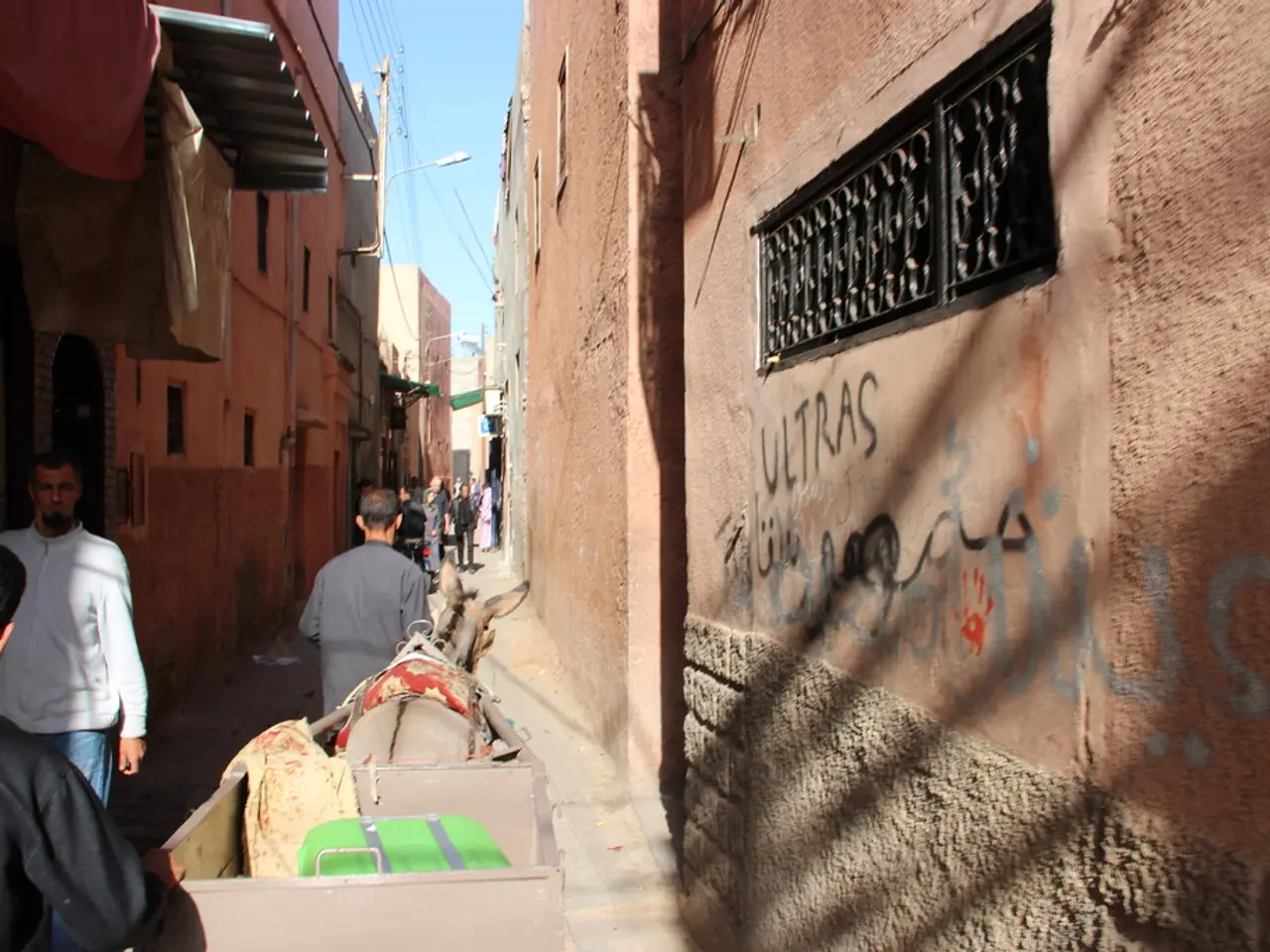Israel urged to ensure the security of Gaza's supply by the Federal Government
The Gaza Strip, a coastal region on the Mediterranean, is currently facing a severe humanitarian crisis, with fears of famine and food insecurity looming large. Despite ongoing efforts to deliver aid, the scale of assistance is insufficient relative to the needs, and logistical challenges persist.
Israel, which controls all access to the Gaza Strip, has been under scrutiny for its role in ensuring comprehensive supply. The Bundeswehr, Germany's armed forces, recently began drops of food and medical equipment over the Gaza Strip as part of an ongoing aid action. However, these airdrops only represent a small contribution to alleviating the suffering of the people in Gaza, according to Chancellor Friedrich Merz.
The Gaza Strip is on the brink of famine, as indicated by UN statements. Over 20,000 children have been treated for acute malnutrition since April 2025, with starvation-related deaths reported. More than 2 million people are fully dependent on food aid, but border constraints limit aid deliveries to only a fraction of what is needed. For instance, the World Food Programme (WFP) has delivered 48.5 million pounds of food aid since May 2025, far less than the required 135 million pounds per month to meet demand.
Delivery bottlenecks include limited crossing points, long waits for clearance, damaged roads, and security checkpoints. Regarding concerns about diversion of humanitarian supplies by Hamas or criminal groups, while no recent direct evidence of diversion was cited, it is a known challenge. Aid agencies emphasize the need for ceasefires and secured humanitarian corridors to ensure safe and reliable delivery to civilians.
Canada has been actively involved in addressing the crisis, announcing a $30 million funding package in July 2025 to support humanitarian logistics. They have partnered with UN and Red Cross to scale assistance into Gaza and have contributed over $355 million since the conflict escalated in October 2023.
Meanwhile, the price of flour in the Gaza Strip has skyrocketed to 80 euros per kilogram. Despite the ongoing airdrops, the situation remains dire. Two out of three major water pipelines in the Gaza Strip are currently functioning, while only one out of ten power transmission lines is in operation. Israel has not allowed or only a few aid deliveries to pass for several months.
Foreign Minister Johann Wadephul (CDU) recently informed the Security Cabinet about his trip to Israel and the West Bank. Chancellor Merz thanked Jordanian and European partners for their assistance in the airdrops and reiterated their commitment to working intensively to enable aid via land routes.
As the humanitarian crisis in the Gaza Strip continues to worsen, international cooperation and aid efforts remain crucial to preventing a full-blown famine and alleviating the suffering of its people.
[1] Canadian government funding for Gaza crisis relief: https://www.canada.ca/en/global-affairs/news/2025/07/canada-announces-30-million-in-funding-for-humanitarian-logistics-in-gaza.html [2] UN reports on Gaza Strip humanitarian crisis: https://www.un.org/sg/en/content/sg/statement/2025-06-01/un-chief-antonio-guterres-statement-gaza [3] World Food Programme updates on Gaza Strip food aid: https://www.wfp.org/emergencies/gaza-strip [4] UNICEF reports on Gaza Strip child malnutrition: https://www.unicef.org/press-releases/unicef-reports-alarming-rise-acute-malnutrition-gaza-strip-children-amid-ongoing-humanitarian-crisis
- The ongoing humanitarian crisis in the Gaza Strip, marked by fears of famine and food insecurity, is a focal point of war-and-conflicts and general-news, given the escalating need for aid and the logistical challenges in its delivery.
- Despite contributions from international organizations like the Bundeswehr, Canada, and the World Food Programme, the humanitarian crisis in the Gaza Strip remains dire, highlighting the urgent need for politics to prioritize and ensure comprehensive supply to prevent a full-blown famine and alleviate the suffering of its people.





